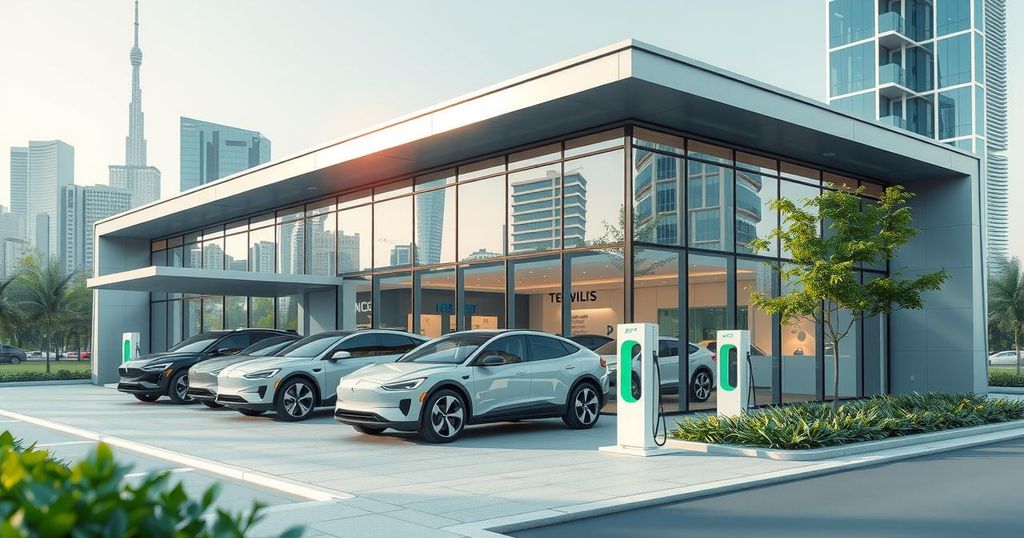BYD Plans Major Saudi Expansion Following Tesla’s Market Entry
- BYD aims to grow from three to ten showrooms in Saudi Arabia by late 2026.
- The company’s expansion aligns with Saudi Arabia’s Vision 2030 EV adoption goals.
- EV sales in Saudi Arabia currently represent just over 1 percent of total vehicle sales.
- Tesla’s market entry enhances consumer awareness of electric vehicles in the Kingdom.
- Experts point to potential risks that could slow EV adoption in Saudi Arabia.
BYD’s Expansion Plans in Response to Tesla’s Entry
BYD Co., the leading Chinese electric vehicle manufacturer, is set to significantly increase its market presence in Saudi Arabia, particularly following the arrival of competitor Tesla Inc. The firm’s managing director for the Kingdom, Jerome Saigot, recently announced plans to grow from its current three showrooms to a total of ten locations by the end of 2026. This ambition aligns impeccably with Saudi Arabia’s broader initiative to position itself as a center for electric vehicles (EVs), aiming for a target of 30 percent EV adoption by 2030 as part of its Vision 2030 economic diversification strategy.
Challenges in the EV Market and Infrastructure
Saigot emphasized the need for speed and scale in such a challenging market, stating that BYD does not intend to limit its sales figures to just 5,000 or 10,000 vehicles per year. This sentiment echoes a larger trend within Saudi Arabia’s Public Investment Fund, which has made substantial investments in the EV sector, including backing for Lucid Motors and the launch of its own brand, Ceer. However, despite these developments, electric vehicles still represent barely over 1 percent of total vehicle sales in the Kingdom, according to recent data from PwC, highlighting ongoing obstacles such as high costs and sparse charging infrastructure compounded by extreme climate conditions.
Consumer Awareness and Market Challenges
Interestingly, Saigot observed that Tesla’s foothold in the Saudi market is a beneficial factor for companies like BYD, enhancing overall consumer awareness and interest in electric vehicles. He noted, “The more Tesla communicates on marketing, the better it is for us,” and expressed optimism about the impact of Tesla’s strong brand recognition. Furthermore, according to research by Oliver Wyman, nearly half of Saudis are now contemplating purchasing an electric vehicle, which indicates a growing shift in consumer attitudes. However, experts like Taline Vahanian of Marsh UAE caution against risks associated with the sector such as battery degradation in extreme temperatures and increasing insurance costs that could hinder consumer adoption.
In summary, BYD’s strategic expansion into Saudi Arabia marks a significant shift in the electric vehicle landscape of the region, particularly in light of Tesla’s entry. Despite existing challenges related to costs and infrastructure, the Saudi market appears poised for growth as consumer interest in EVs rises. This development holds promise not just for BYD but for the electric vehicle sector as a whole in the Kingdom.




Post Comment